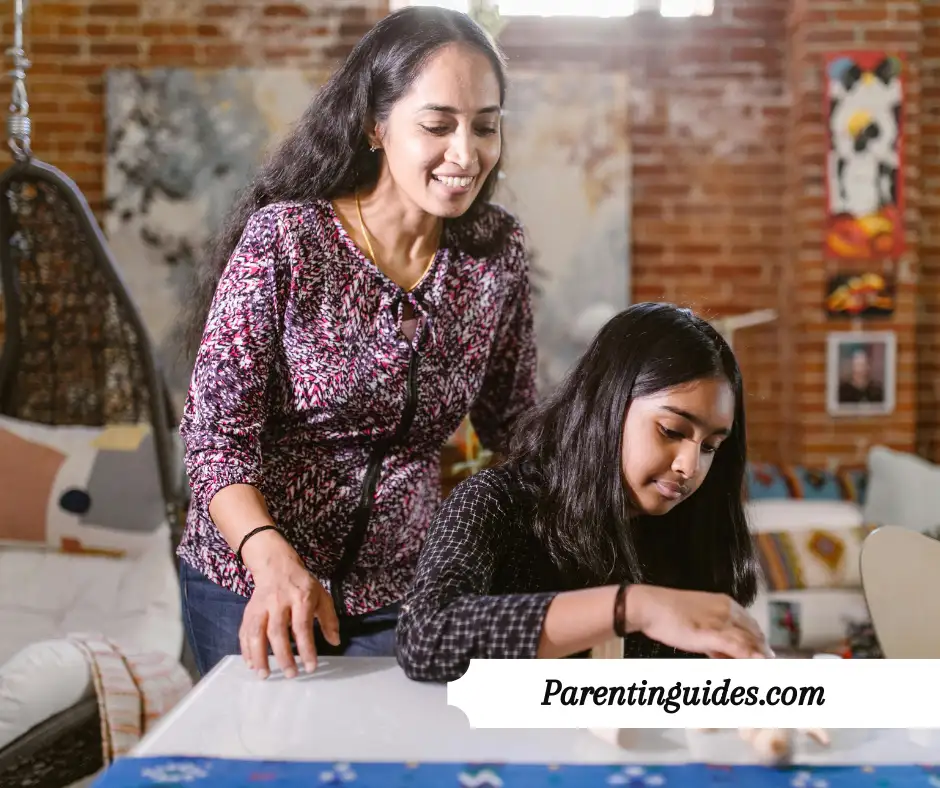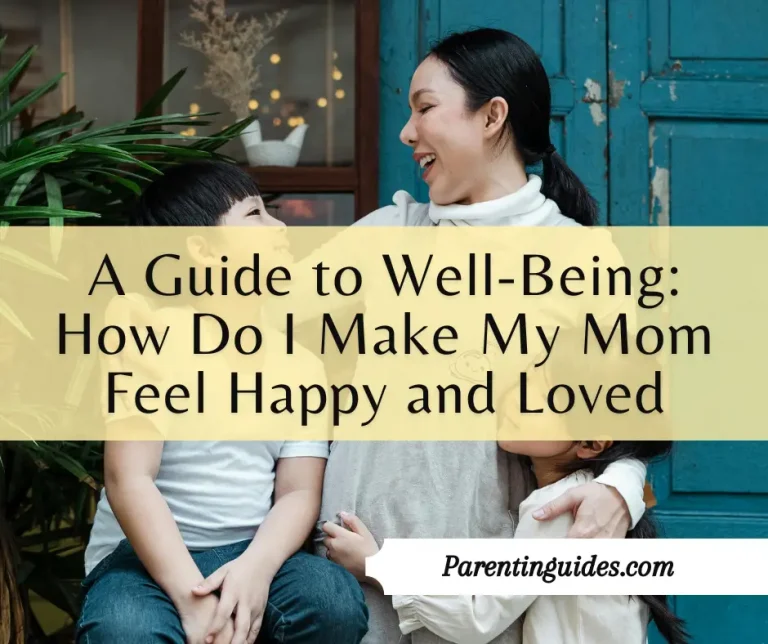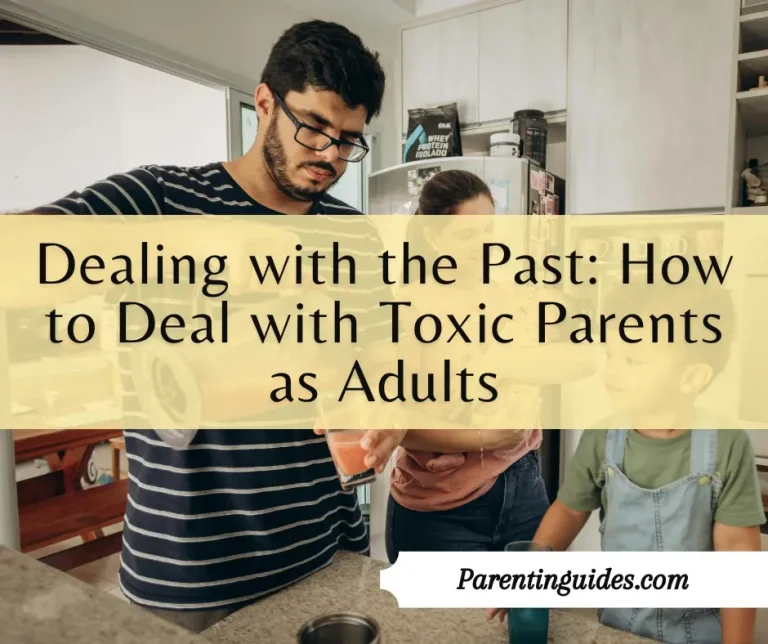Have you ever wondered why it sometimes feels like you’re speaking a different language than your mom? Understanding each other isn’t just about words; it’s about bridging hearts and minds across generational divides. As a counselor, I’ve often seen the struggles children face in trying to communicate with their mothers. This article aims to help you discover how to get your mom to understand you and strengthen your bond, an essential foundation for family harmony.
The disconnect between children and their mothers can sometimes seem like a wide chasm. My clients often share experiences of frustration and confusion when trying to communicate with their parents. For example, one client felt her mom never listened to her feelings, leading to frequent misunderstandings.
In the sections that follow, we will explore various aspects crucial to improving your relationship. We’ll discuss the significance of acknowledging the generational gap, employing effective communication strategies, and engaging in activities that build mutual trust and respect. Moreover, for families needing extra support, we’ll delve into how professional guidance can further facilitate understanding and bonding. It will help you to get your mom to understand you.
This guide is crafted to offer practical strategies that foster better communication and deepen the connection between you and your mom. Whether you’re dealing with everyday misunderstandings or deeper communication issues, this article will provide you with the tools to get your mom to understand you better and strengthen your bond.
Throughout this article, I’ll share my experiences and the insights I’ve gained from working with families just like yours. Let’s embark on this journey together to build bridges, foster understanding, and create lasting bonds with our mothers.

Understanding the Generational Gap
Historical Context and Changing Times
Societal changes have significantly shaped the perspectives of different generations. For example, our parents grew up in a time when technology was not as prevalent. They relied more on face-to-face interactions and traditional forms of communication. This shaped their worldview and how they relate to others, including us. Meanwhile, we are growing up in a digital age where communication is instant and often virtual. This difference in experiences can create misunderstandings and a feeling of disconnect.
Understanding this historical context is crucial in helping to get your mom to understand you. When you realize why your mom might think or react a certain way, you can bridge the gap between your perspectives. I remember a client who struggled with her mom’s reluctance to use social media. By discussing how her mom grew up in a time without the internet, she began to understand her mom’s hesitance and found new ways to connect that respected both their experiences.
Recognizing Different Communication Styles
Different generations often have distinct communication styles. For example, many of our parents are more used to direct, face-to-face conversations, while we might prefer texting or social media interactions. Recognizing these differences is essential in getting your mom to understand you better.
If you are wondering how to get your mom to understand you, consider this carefully. Once I had a client who found it challenging to communicate with her mom because she felt her mom didn’t listen when she spoke. By exploring their communication styles, they realized that her mom was more comfortable with scheduled, uninterrupted conversations. They agreed to set aside specific times to talk, which improved their communication significantly.
Adapting your communication style to better align with your mom’s can make a big difference. If your mom prefers talking in person, try to make time for those face-to-face conversations. If she’s more comfortable with written communication, maybe write her a heartfelt letter. These small adjustments can go a long way in helping you get your mom to understand you.
Empathy and Patience in Conversations
Empathy and patience are crucial when trying to get your mom to understand you. Empathy involves putting yourself in your mom’s shoes and trying to see things from her perspective. Patience means giving her the time to process and respond to what you’re saying without rushing or getting frustrated.
One of my clients struggled with feeling misunderstood by her mom. They often ended up arguing because neither took the time to truly listen to the other. We worked on developing empathy and patience in their conversations. Instead of immediately reacting, my client practiced taking a deep breath and really listening to her mom’s point of view. This approach helped them have more meaningful and less confrontational discussions.
By using empathy and patience, you create a more supportive environment for communication. This approach fosters mutual respect and understanding, making it easier to get your mom to understand you. It’s about building a bridge of compassion and patience that supports better communication and a stronger bond.

Effective Communication Strategies in Family
Active Listening
Active listening is about fully concentrating on what is being said rather than just passively hearing the speaker’s words. It involves listening with all senses and giving full attention to the speaker. The benefits of active listening are profound. It not only helps you get your mom to understand you, but it also fosters deeper empathy and reduces conflicts.
From my experience as a counselor, I’ve seen many children struggle with feeling unheard by their parents. To improve active listening, start by making eye contact and nodding to show you are engaged. Next, avoid interrupting while your mom is speaking. Let her finish her thoughts before you respond. This shows respect and allows you to fully understand her perspective.
I remember a session where a client learned to practice active listening with her mom. By repeating back what her mom said in her own words, she could clarify misunderstandings immediately. This method dramatically improved their communication. So, they will help you too to get your mom to understand better.
Clear and Respectful Expression
Expressing your thoughts and feelings clearly and respectfully is crucial in any relationship, especially with your mom. It involves using language that is straightforward and avoiding blame or judgment.
In counseling, I teach that to express yourself effectively, start by using “I” statements. For example, say, “I feel upset when…” instead of “You make me upset.” This approach shifts the focus from blaming to understanding. It helps get your mom to understand you without putting her on the defensive.
One of my clients had difficulty sharing her feelings with her mom. Together, we worked on crafting clear messages. She practiced saying, “I feel worried when I don’t hear from you,” instead of accusing her mom of neglect. This clear, respectful communication opened new paths for understanding and improved their relationship significantly.
Non-Verbal Communication
If you are wondering how to get your mom to understand you, her is another crucial point. Non-verbal communication, such as body language and facial expressions, plays a significant role in how we convey and interpret messages. For instance, crossed arms can seem defensive, while a smile can ease tension.
In my practice, I emphasize the power of positive non-verbal cues. Smiling, maintaining an open posture, and nodding can make your mom feel more at ease and open to communication. It makes it easier for her to understand you.
A client once shared how changing her body language changed her conversations with her mom. She started to face her mom directly and maintained eye contact, which made her mom feel valued and listened to. This non-verbal adjustment was a small change, but it significantly impacted their ability to communicate effectively.
By applying these techniques, you can enhance your ability to get your mom to understand you, fostering a stronger and more empathetic bond between you both.

Building Trust and Mutual Respect
Consistency and Reliability
One of the foundational elements to get your mom to understand you is through consistency and reliability. In my counseling practice, I’ve observed that children who consistently show up as promised tend to build stronger trust with their parents. Being reliable means doing what you say you will do, whether it’s completing chores on time or being home by curfew.
For example, a client once shared that his relationship with his mom improved significantly when he started following through on his commitments without being reminded. This consistent behavior showed his mom that he was responsible, which made her more willing to listen and understand his viewpoints.
So, if you want to get your mom to understand you, start with small commitments. Tell your mom you will handle a specific task, and then do it. Each small act of reliability builds trust over time, making it easier for your mom to understand and trust your words and actions. Being consistent isn’t just about big promises; it’s about being someone your mom can rely on every day.
Respecting Boundaries
Respecting each other’s boundaries is crucial if you are about to get your mom to understand you. It’s important to understand and honor the limits each person sets. In the context of getting your mom to understand you, it’s essential to communicate your boundaries clearly and respectfully listen to hers.
One client struggled with feeling smothered by her mom’s involvement in her personal life. We worked together to identify her boundaries and communicate them to her mom in a way that was clear but respectful. By explaining her need for space in certain areas, she helped her mom see where lines needed to be drawn. This mutual respect for boundaries reduced conflicts and enhanced their understanding of each other.
To respect boundaries effectively, discuss openly what you are comfortable with and ask your mom to do the same. This dialogue can help both of you understand and respect each other’s personal space and preferences. So, it will be easy for you to get your mom to understand you to have an understanding relationship.
Acknowledging Mistakes and Apologizing
Acknowledging mistakes and offering sincere apologies are powerful tools in building trust and understanding. Everyone makes mistakes, but owning up to them can strengthen relationships, showing maturity and respect.
In my practice, I’ve helped many young people learn how to apologize effectively. For instance, a young client once made a significant mistake by breaking a family rule. Instead of hiding it, he admitted his mistake to his mom and sincerely apologized. This honesty opened a conversation about trust and responsibility, which ultimately brought them closer.
To apologize sincerely, express regret for your actions, explain why they were wrong, and commit to avoiding such mistakes in the future. This process shows your mom that you are mature enough to recognize your faults and are working on bettering yourself. Such actions make it easier for your mom to understand and trust you, enhancing your relationship significantly.
Through these methods, you will get your mom to understand you better. Each step reinforces that you are considerate of her feelings and committed to a healthy, respectful relationship.

Shared Activities and Quality Time
Identifying Common Interests
Finding and nurturing common interests is a wonderful way to get your mom to understand you better and strengthen your bond. In my experience as a counselor, I’ve seen how shared activities can transform relationships. It’s about discovering what you both enjoy and making time to explore these interests together.
For instance, a client of mine found common ground with his mom through gardening. Neither had much experience, but they started learning together. This shared activity not only gave them a common project to discuss and plan but also several peaceful hours each week to connect.
To find common interests, start by listing activities you both have shown curiosity about in the past. It could be anything from cooking, reading, hiking, to more structured classes like pottery or painting. The key is to be open and experiment with different activities until you find something that excites you both. Engaging in these activities can help get your mom to understand you on a deeper level, as shared passions create natural opportunities for conversation and connection.
Planning Regular Bonding Time
Regular quality time is crucial for maintaining and strengthening any relationship. It’s important not just to find time together but to make this time meaningful and focused. As a counselor, I always emphasize the significance of undistracted time to my clients because it shows commitment to the relationship.
One effective strategy I recommend is setting a “date” at least once a week where you and your mom do something enjoyable together, free from everyday distractions. Whether it’s a simple walk in the park, a movie night, or a craft project, the activity itself is less important than the commitment to spend that time together.
Planning these regular moments can significantly help to get your mom to understand you It provides a routine that reinforces your bond and ensures that both of you have something special to look forward to. These planned interactions are opportunities to share, learn more about each other, and grow closer, which can make your mom more receptive and understanding of your perspectives.
Creating Positive Memories
Creating positive memories together is not just about enjoying the good times but about building a reservoir of goodwill that can help smooth over rough patches. If you wonder how to get your mom to understand you, positive memories are powerful. They remind us why we value each other and strengthen our connections during times of conflict.
I often tell the story of a young client who felt disconnected from her mom due to constant arguments. They decided to start a tradition of visiting a new local café each month. Over time, these outings became a cherished memory bank that they both treasured. Whenever they faced difficulties, recalling these happy times helped them handle conflicts more gently and with understanding.
These memories will not only help get your mom to understand you better but also build a bond that enriches your relationship in profound and lasting ways.

Seeking Professional Guidance
Family Therapy and Counseling
Family therapy can be an invaluable tool in improving communication and understanding between you and your mom. As a counselor, I’ve witnessed firsthand how bringing a professional into the mix can offer new perspectives and mediate difficult conversations that might otherwise lead to conflict. It provides a safe space to express feelings and address issues with the guidance of someone trained to handle emotional dynamics.
For those looking to find a qualified therapist, it’s important to look for someone specialized in family dynamics. You can start by seeking referrals from your primary care physician or searching through professional therapy organizations online. Additionally, checking reviews and qualifications on therapy websites can also guide you in choosing the right person to help get your mom to understand you better.
In my practice, I’ve seen remarkable transformations. One client was struggling to bridge a deep communication gap with her mom. Through therapy, they learned effective communication techniques and understood each other’s perspectives better, which significantly improved their relationship. This professional environment facilitated a deeper understanding and helped both to mend their bond.
Workshops and Seminars
Attending workshops and seminars focused on communication and relationship-building can be incredibly beneficial. These sessions provide practical tools and foster a learning environment where both you and your mom can grow. Experts in the field share their insights, offering strategies that can help you get your mom to understand you and vice versa.
If you are wondering how to get your mom to understand you, note this properly. I recommend looking for reputable organizations that specialize in parenting and interpersonal relationships. Often, community centers, local colleges, and mental health organizations offer workshops that can be both informative and transformative. Participating in these events together with your mom can also serve as a bonding experience, reinforcing your commitment to improving your relationship.
One of my clients, who was feeling disconnected from her mom, attended a series of workshops with her. They learned new ways to communicate and handle disagreements. These shared learning experiences not only provided them with useful skills but also showed each other their willingness to work on their relationship.
Online Resources and Support Groups
The internet offers a plethora of online resources and support groups that can help you to get your mom to understand you better. These platforms provide access to articles, forums, and online counseling sessions that can offer support and advice tailored to your specific needs.
When looking for credible websites and communities, focus on those with expertise in family relationships or adolescent psychology. Websites like the American Psychological Association and various family therapy networks can be excellent starting points. These resources often feature experiences shared by other individuals who have faced similar challenges.
Moreover, one of my clients joined a mother-child communication group online and found it incredibly helpful. It provided her with the tools to get her mom to understand her better and helped her mom see things from her daughter’s perspective. Therefore, understand these strategies clearly if you are wondering how to get your mom to understand you.

Conclusion
In our journey to get your mom to understand you better and strengthen your bond, it’s clear that communication, mutual respect, and shared experiences play pivotal roles. By employing the strategies discussed, from acknowledging the generational gap to engaging in effective communication and shared activities, you can build a foundation of understanding and trust.
Throughout this article, I’ve shared experiences from my counseling practice where simple changes led to profound improvements in family relationships. Remember, getting your mom to understand you is not about one conversation; it’s about consistently applying these principles and being open to learning from each other. Every effort you make brings you closer to a deeper, more meaningful connection.
Let’s continue to build bridges, foster understanding, and create lasting bonds with our mothers. By taking these steps, you’ll not only get your mom to understand you better, but you’ll also enhance the overall harmony within your family. Embrace the journey, cherish the moments you share, and always strive for open, honest, and compassionate communication. Together, let’s nurture the bonds that make our family relationships rewarding and fulfilling.





